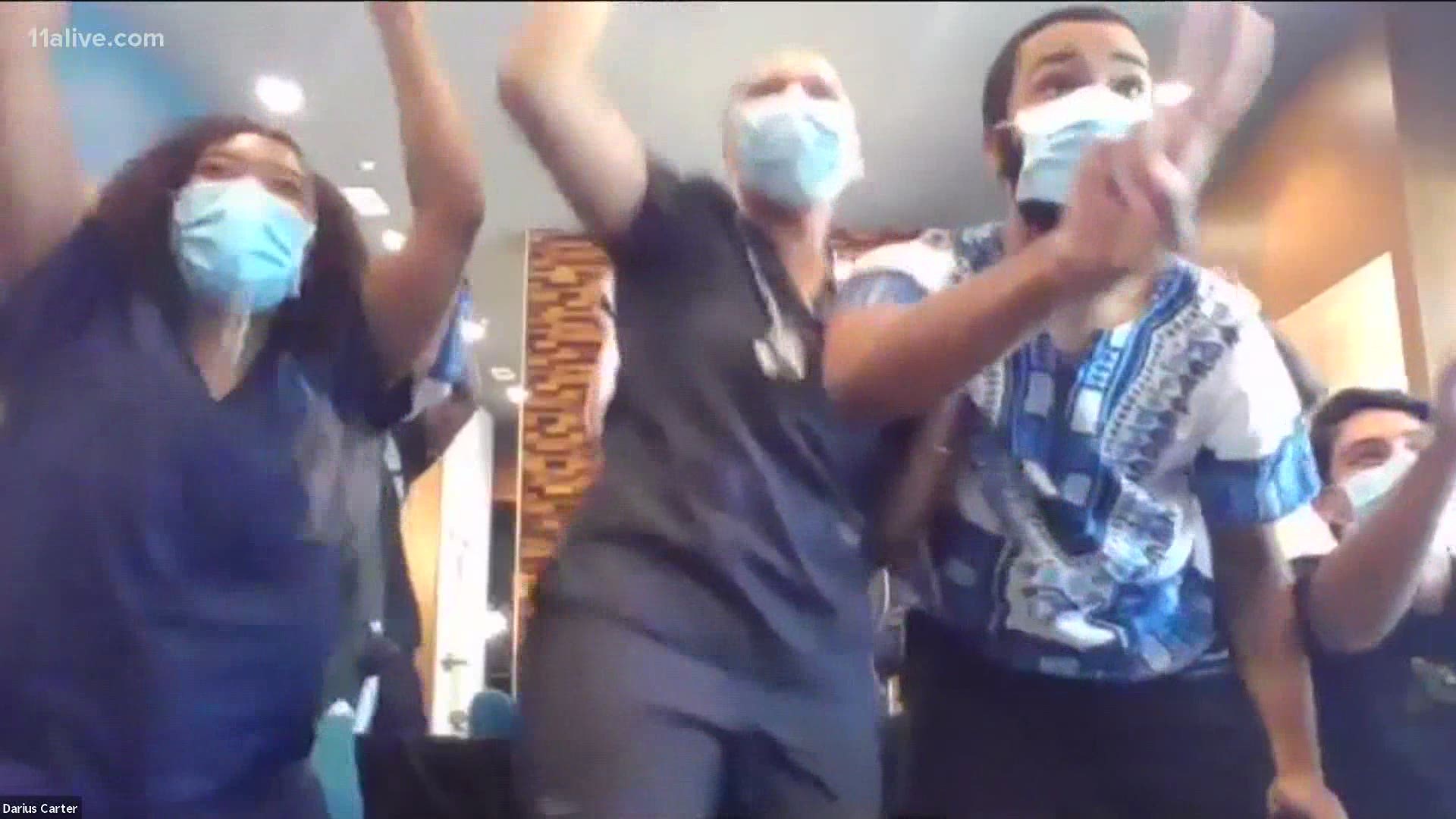ATLANTA — It's a major gift to an Atlanta-based historically Black college aimed at helping close the gap in medical disparities in America.
On Wednesday, Morehouse School of Medicine announced they received a $26.3-million donation from Bloomberg Philanthropies, the organization founded by former New York City Mayor Michael Bloomberg.
The donation is part of a greater $100-million fund for students attending the nation's four historically Black medical schools, including Morehouse School of Medicine.
According to the school, the funds will be used to reduce medical school loan debt for Black students currently enrolled and receiving financial aid - totaling about $100,000 per student.
RELATED: Oklahoma high school basketball star to attend HBCU in Atlanta, receives $180K ROTC scholarship
Bloomberg himself taped a video message to highlight why the investment is so critical for the country, and the communities of color that are often at high-risk when it comes to healthcare.
The statistics are troubling.
It's already a well-established trend that the coronavirus pandemic has been particularly deadly and devastating for Black Americans. But, according to a 2015 study by the Centers for Disease Control and Prevention, the population had higher death rates than Whites for all-cause mortality in all groups less than 65 years old.
And while studies have shown that Black infants are already more likely to die than their White counterparts, when they are cared for by Black doctors, that rate is cut in half, according to one most recent study.
But, Black doctors only make up 6 percent of physicians in America. Congress has introduced a bill that would put $1 billion toward diversifying medical schools, but Bloomberg's donation will go directly toward medical students studying in the field.
"That's why I made this gift," Bloomberg said. "America urgently needs more Black doctors."
"The data is clear, more Black doctors will mean more Black lives saved and more economic opportunity," Bloomberg said in a video statement announcing the donation. "So much is at stake, and the burden of school debt should never stand in the way."
According to the Association of American Medical Colleges, the average cost for medical school in 2016 was $232,800 at public institutions and $306,200 for private institutions - a steep barrier, and possible deterrent, for those who may not be able to afford medical school financially.
11Alive spoke to a few of those students who will benefit from the gift. They said they are still stunned by the surprise.
"It's a range of emotions," Kamron Robinson said. "From overly excited and joyous to very thankful. I think I woke up everybody in the house."
"It's just an overwhelming sense of gratitude," said Nikki Jones. "Just thankful to have some of the stress relieved of the debt that I have accumulated going through this journey of medicine.
According to the school, this is the largest scholarship it has ever received.

